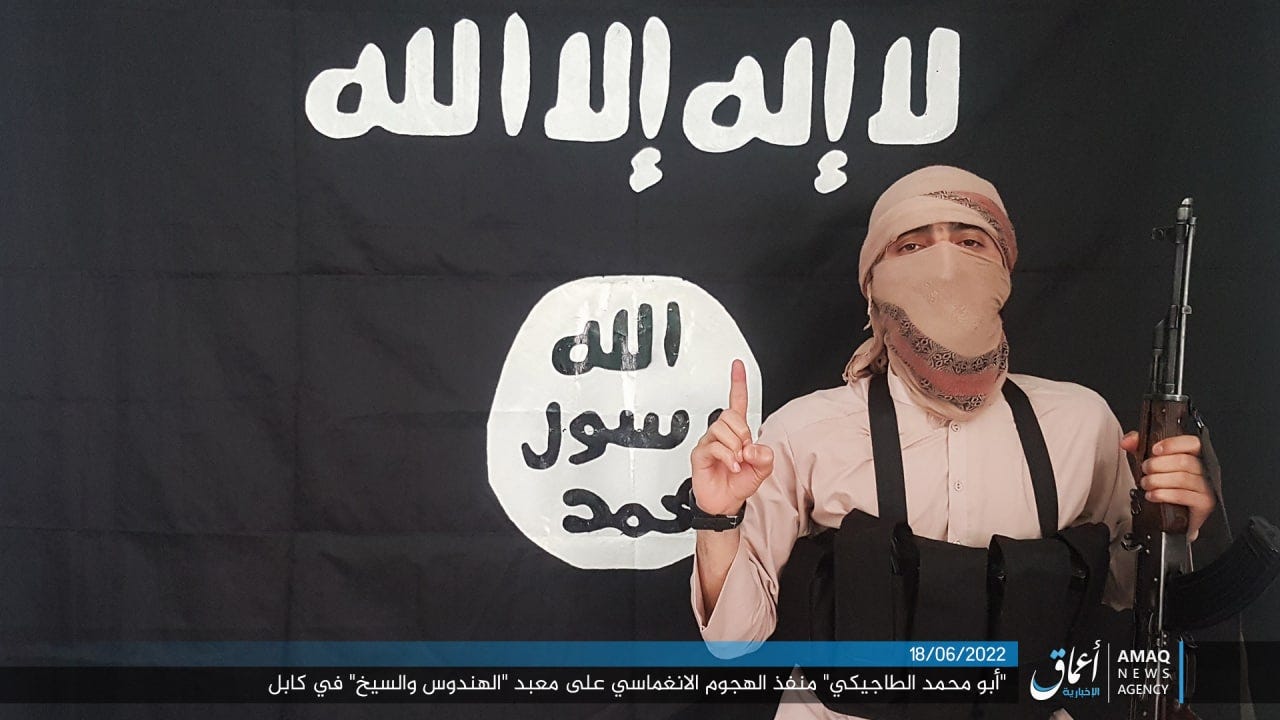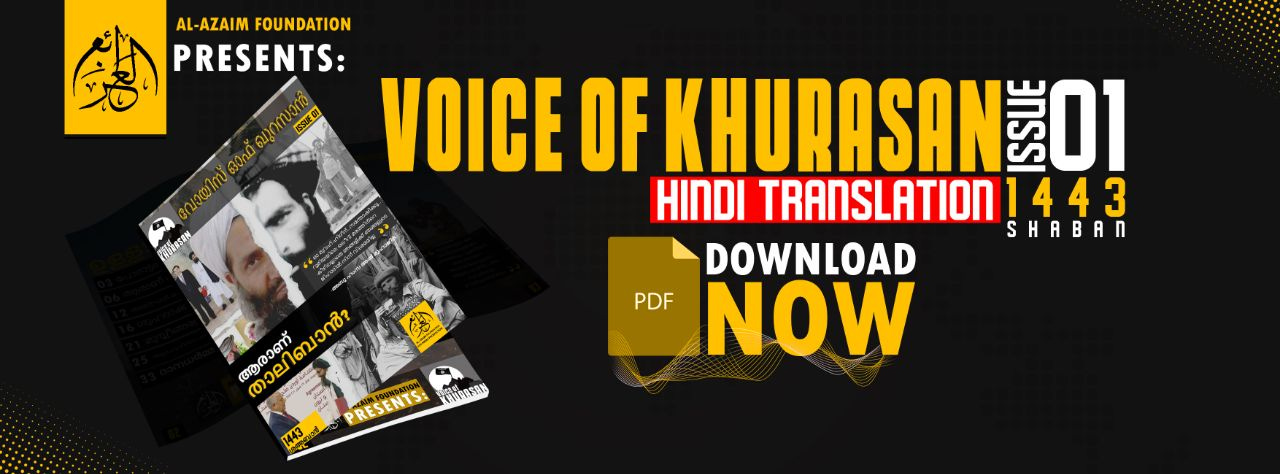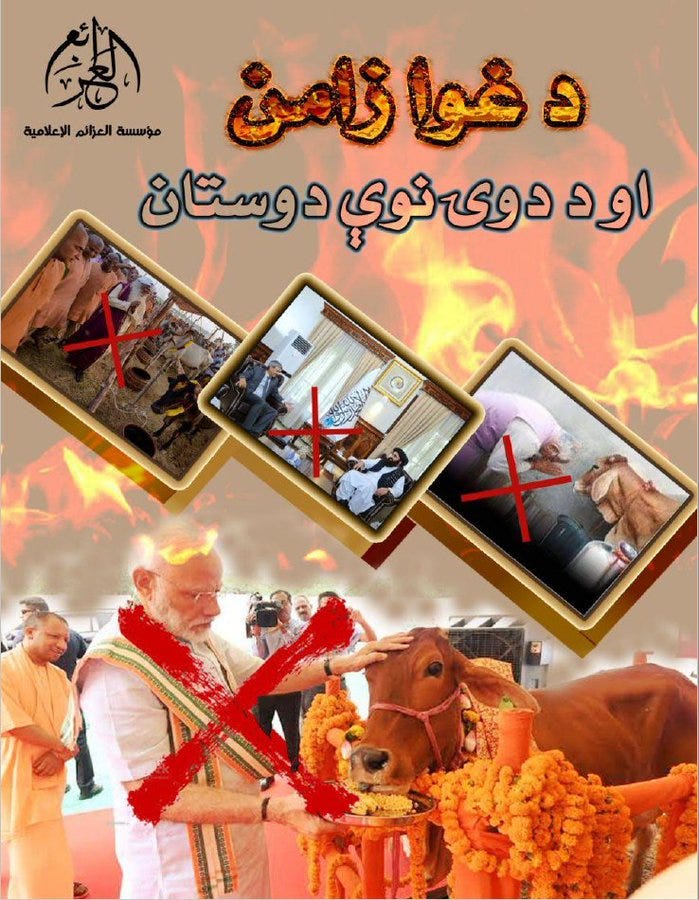Islamic State in Afghanistan Bolsters Anti-India Campaign with Attack on Gurdwara Karta-E-Parwan
On June 18, assailants attacked the Karta-e-Parwan Gurudwara (Sikh temple) in the Afghan capital city of Kabul. The inghimasi attack killed a total of two people, including an Afghan Sikh. The attack was later claimed by the Islamic State in Khorasan Province (ISKP), the regional affiliate of the Islamic State (IS). The attack on the Gurudwara serves as another example of the group's predatory and targeted sectarian violence against minorities, such as the Hazara communities of Afghanistan. It is important to recognize the fact that the attack on the Gurudwara was in stated response to remarks made by senior BJP (Bhartiya Janta Party) officials about Prophet Mohammad. As India extends its outreach to the Taliban, this attack raises questions about whether or not it is indeed the right step for the country to reopen its mission in the Islamic Emirate of Afghanistan.
The attack on the Gurudwara exemplifies ISKP's regional and international outreach programs as it strives to further its goals in the region. ISKP has used its diverse cadre to attack the region's countries and by employing fighters from certain religions and ethnicities from the population of those countries to carry out attacks. Among these are the March 2020 attack on a Sikh gurudwara in Kabul and the August 2020 prison break in Jalalabad, both perpetrated by Indians. However, the latest attack on the 18th of June was carried out by a Tajik national, which came as a surprise to many given the strategic choice of militants by ISKP historically. Nonetheless, by choosing a Tajik national to attack a Gurudwara, the group has been able to signal prospective fighters coming either from India or Tajikistan to join their ranks. There is also reason to question ISKP's response to comments made by “Hindu” officials about attacking a Gurudwara (Sikh temple). ISKP is quite clearly trying to exploit existing communal tensions in India to advance its agenda.
As Kabir Taneja, Fellow at the Observer Research Foundation (ORF), argues, the Gurudwara attack “was opportunistic from ISKP, largely aimed at its interests within Afghanistan.” Taneja points out that similar to the recent Hijab Row in India, the Prophet row in India offered ISKP a good platform to push its agenda on. He further added: “ISKP seems to have used the row in India, and attack on the Gurdwara, to basically scale up its position against the Taliban in Afghanistan. The Indian issue provided a springboard for ISKP to act on to further its aim within Afghanistan itself.”
As part of its media warfare strategy, ISKP has ramped up and expanded the scope of its propaganda operations in the past couple of years, and particularly over recent months. The propaganda released by the group is no longer limited to locally-spoken languages traditionally used in their productions, and they are now producing materials in Urdu, Uzbek, Tajik, Hindi, Malayalam, English (the world’s most-spoken language) and more. The group most recently launched a new Voice of Khurasan magazine in English that first appeared online in January 2022. These publications contain anti-Taliban narratives and bolster ISKP's agenda to recruit regional supporters while undermining the Taliban's diplomatic relations with countries like China, Iran, Russia, etc.
In addition, the release of these documents has become more responsive to the current socio-political environment in certain countries. ISKP, for example, released propaganda criticizing the Taliban shortly after their public announcement of a bilateral meeting with India in early June 2022. During their meeting, the Taliban assured the Indian government that they would not allow their land to be used for terror attacks against India. ISKP released a 50-page document on the recent controversial statements of Indian ruling party leaders in another effort to exploit opportune moments made possible by ethnic and communal tensions worldwide. The document, which was released roughly a week before the heinous attack on the Gurudwara strongly criticized the Taliban's attempts to establish diplomatic relations with India and implored attacks against India and Indians worldwide.
As India plans to grapple with the attack while continuing its outreach to the Taliban, researchers believe that the country faces multi-pronged threats from ISKP. As Dr. Amira Jadoon, an Assistant Professor in the Department of Social Sciences and the Combating Terrorism Center at the United States Military Academy argues, India’s “main threat from ISKP right now is the group's strong interest in tapping into the grievances of Muslims within India and boosting recruitment.” Dr. Jadoon points out that “this can become a more significant threat for India in the future as it may encourage more attempts for terrorist attacks within India or its regional interests.”
“As ISKP seeks to rebuild, and develop a regional reputation, growing tensions within India are likely to be seized by ISKP to not only justify its violent actions but cast a wider net for recruits”, she noted, as she firmly believes that the propaganda targeting India and its interests could continue and could even become more aggressive in the future.
Moreover, as ISKP continues competing with the Taliban and against groups such as Al Qaeda in the Indian Subcontinent (AQIS), it will try to match the propaganda it publishes with direct actions, undermining the Taliban’s legitimacy. Though both ISKP and AQIS have waged propaganda war against India, neither has met their ambitions nor found their desired level of success in terms of anti-India narratives resonating with Indian Muslims. In any case, the fact that ISKP has started producing propaganda in Indian regional languages is troubling and shows its determination to reach out to its target audience. It remains to be seen what actual effect the group's targeted propaganda will have on its intended audience.
As India continues its diplomatic relations with the Taliban, it will have to be realistic about and likely coordinate security policy to some extent regarding the threat it faces from the regional terror groups such as ISKP, AQIS etc. Indian security agencies would do well to not fall for binary interpretations as that could hinder their realistic threat perceptions vis-à-vis the terror groups in the region. India should not be afraid to play hardball with the Taliban and should be ready for a carrot and stick approach with the latter to safeguard the security of India and Indian interests in the Islamic Emirate of Afghanistan.







Well written and explained. One more incident of murdering a tailor by jihadis on 28.06.2022 at Udaipur in India proves the facts pointed out in this aforesaid article.